April 28 marks the 100th anniversary of the birth of the late Dr. Alfred Bader, BSc’45, BA’46, MSc’47, LLD’86. Dr. Bader and his family have shared a connection with Queen’s that has spanned more than 70 years with transformational gifts of art, music, learning, and community, reshaping the landscape of Queen’s and dramatically enhancing the student experience.
To mark the occasion, we’re highlighting Dr. Bader’s story and impact across Queen’s alumni channels for the next three days. You can follow along on Instagram, Facebook, Twitter, and LinkedIn.
Born in 1924 in Vienna, Austria, his mother was a Catholic Hungarian countess and his father a middle-class Jew. His father died shortly after his birth, leaving his mother without income during a time of economic instability. As a result, Dr. Bader was adopted and raised by a paternal aunt.
A keen student, his studies were interrupted in 1938 by discriminatory laws prohibiting Jewish children in school past age 14 in Austria. Dr. Bader left the country that same year, one of 10,000 Jewish children who were evacuated to Britain from Germany and Nazi-occupied countries as part of the Kindertransport initiative.
However, in 1940, with Italy’s entry into the war, British Prime Minister Winston Churchill ordered “enemy aliens” to be sent to internment camps even though most were refugees.
Dr. Bader was sent to an internment camp in Canada and would remain at Fort Lennox in Quebec until the fall of 1941 when he was released into the care of a sponsor, Martin Wolff.
Wolff became like a father to Dr. Bader, encouraging him to continue his education and, with Wolff’s support, Dr. Bader was accepted as a mid-term entrant into the Faculty of Applied Science at Queen’s.
He arrived on campus on Nov. 15, 1941, and by 1947 had completed three degrees at Queen’s before earning his PhD in organic chemistry from Harvard in 1950.
It was during his time at Harvard that Dr. Bader began what would become a lifelong commitment to giving back to the Queen’s community. When Martin Wolff passed away in 1948, he left Dr. Bader $1,000 in his will. Still a student himself, Dr. Bader used the funds to start the Martin Wolff Scholarships in Civil Engineering at Queen’s, the first of many awards, bursaries, and fellowships established by the Bader family to ensure more students could experience the transformational power of education.
His approach to philanthropy was grounded in his experiences as a young refugee who found community and opportunity at Queen’s.
"A great many Queen’s people have helped me, and I have tried to repay those many acts of kindness by helping others. At the end of my days, I pray that I will have succeeded as Queen’s succeeded with me – in helping others in their professions, in their perspectives, in their realization of their potential." Dr. Bader said when receiving his honorary degree from Queen’s in 1986.
Over the next few days, we’ll be highlighting several of Dr. Bader’s significant achievements and chronicling the impact of the Bader family at Queen’s. We’ll explore the stories that led to the creation of Bader College, the Isabel Bader Centre for the Performing Arts, The Bader Collection at the Agnes Etherington Art Centre, and the gallery’s remodeling as part of Agnes Reimagined.
We’ll also share testimonials from students attesting to the life-changing generosity of Dr. Bader and see how his commitment to pay it forward has benefitted generations of students. Be sure to check out our commemoration of Dr. Bader’s life on Instagram, Facebook, Twitter, and LinkedIn.


